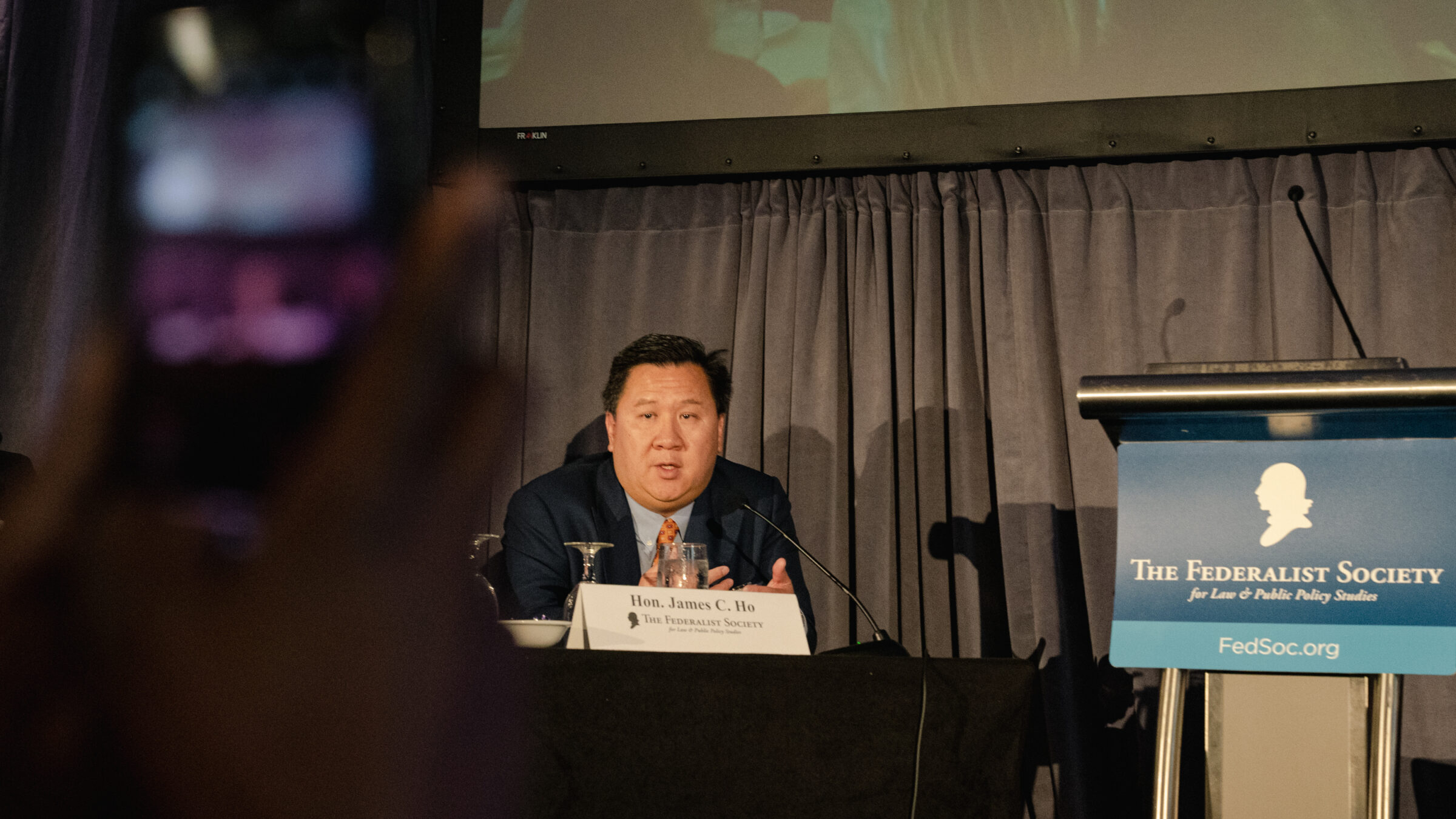Most lawyers have a mental image of the type of person who becomes a federal judge. He’s a white man who attended an Ivy League law school, clerked for one or more “feeder” judges, and worked for a BigLaw firm and/or as a prosecutor. If he’s a Republican, he’s active in the Federalist Society, and met Leonard Leo at a party once, although he only talks about that among friends. If he’s a Democrat, he’s vague about why that is, but happy to expound at length about some tech industry case he’s working on. His primary character trait is ambition. He wouldn’t let anyone take his picture in law school if he was holding a beer because it might come up in his confirmation hearing.
Donald Trump and Joe Biden have both done a lot to disrupt this template, in opposite directions. Trump named a historic number of judges and largely outsourced his selection process to Leo and the Federalist society, who were happy to surface trolly bloggers, ghost hunters, and various other cranks devoted to waging right-wing culture wars. On the flip side, Biden has done an impressive job of nominating more women, people of color, LGBTQ+ people, people with disabilities, and lawyers who spent their careers protecting the rights of regular people rather than amassing more power for the powerful. To date, 62 percent of Biden’s nominees have been people of color. Under Trump, the number was 16 percent.
This progress is important, but insufficient. Federal judges are still disproportionately white, male, and come from a corporate lawyer or prosecutor background. There are a lot of structural reasons for this, including biggies like racism and patriarchy, the immense amounts of corporate money and power that dominate American politics, and fancy lawyers’ addiction to praising other fancy lawyers with similar credentials, no matter how many lives their “judicial philosophies” will destroy.
But one non-zero factor affecting who becomes a judge is within the control of people who find the status quo objectionable: who applies to become a judge in the first place.
The process is not quite as simple as clicking “Apply” on a “Judges Wanted” posting, but, yes, you can apply to be a federal judge! Senators have a lot of say in whom the president nominates for home-state federal district court vacancies, and most senators have judicial selection committees that solicit and review applications, interview and vet candidates, and make recommendations to the senators. Some senators post information online about how to apply: For example, here are announcements about how to apply to recent vacancies in Georgia, California, Wisconsin, and Minnesota. Other senators unfortunately don’t publicize their application processes, but will tell potential applicants who call the senator’s office to ask.
It is even more straightforward to apply to become a federal magistrate judge, a position that can be a stepping stone to a life-tenured federal judgeship. (This increased transparency comes from regulations requiring wide public circulation of magistrate judge vacancy announcements.) Magistrate judges are appointed for renewable eight-year terms, but they perform many of the same judicial duties as Article III judges. It is common for magistrate judges to later be appointed to district or circuit court seats; more than 12 percent of current Article III judges were previously magistrate judges.

Federal appeals court James Ho, who is worse at his job than you would be if you had it, probably (Photo by Shuran Huang for The Washington Post via Getty Images)
None of this is to say that the process for selecting federal judges is a transparent, justice-oriented utopia. Some Senators have no official or public process for making judicial recommendations. Many more have stacked their judicial selection committees with former corporate lawyers, prosecutors, and donors to the Senators’ campaigns. And the process for selecting circuit court judges and Supreme Court justices is sort of like how Yalies tap each other for secret societies. Or at least that’s the vibe, who actually knows.
But this combination of nepotism and opacity can be something of a self-fulfilling prophecy. Many women, people of color, legal aid lawyers, public defenders, civil rights lawyers, labor lawyers, and environmental advocates never consider the possibility of becoming judges because they know they don’t fit the traditional profile. Just as women are less likely than men to consider running for office or to consider themselves qualified to do so, the people whose life and professional experiences are underrepresented on the federal bench are less likely to imagine themselves in those roles—and, thus, to put themselves forward for them.
I am not going to blow your mind when I tell you that the federal courts are up to no good. Many judges are hard at work destroying voting rights, reproductive rights, gun safety laws, workers’ ability to form strong unions, and affirmative action, not to mention federal agencies’ ability to address climate change, student debt, and anything else corporations would prefer go unregulated. This is true in part because judges’ personal and professional backgrounds influence their decisions. Former prosecutors and corporate lawyers are more likely to rule against workers in employment cases. White judges are less likely than Black judges to rule for plaintiffs in racial harassment cases, or against people victimized by police misconduct. And male judges are less likely than female judges to rule for plaintiffs in sexual harassment cases.
A more diverse bench, both demographically and professionally, could go the other way. Think about the impact if legal issues of huge importance to millions of people were decided by more judges from marginalized communities, and with experience representing people rather than corporations. (There’s no better evidence of the potential impact of overhauling the bench than the gusto with which conservatives attack nominees as unqualified based on their race or biased because they are public defenders.) If senators’ selection committees were flooded with applications from these unusual suspects, it’s likely—well, at least possible—that they would make up a larger proportion of nominees.
Making this happen will require lawyers across the country to put aside the squirmy feelings they might have about tooting their own horns to seriously consider whether they might make good judges. Maybe even more, it will require them to encourage their colleagues—especially young lawyers and law students—to think about becoming judges someday. The very people who know they’re not the type to become a judge are the potential nominees who could make the most difference.

